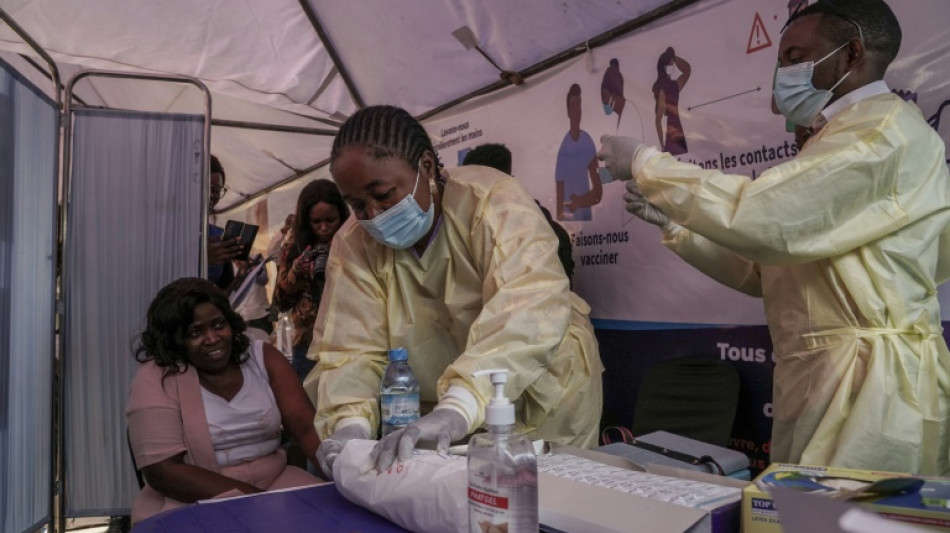
-
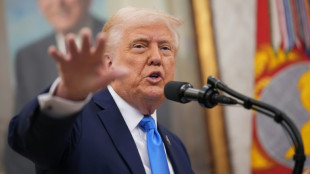 Asian markets edge up but uncertainty rules ahead of Trump tariffs
Asian markets edge up but uncertainty rules ahead of Trump tariffs
-
Nintendo's megahit Switch console: what to know
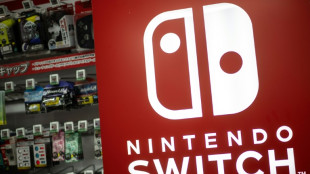
-
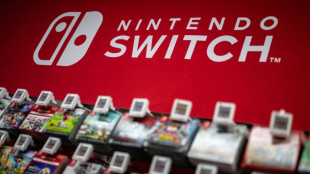 Nintendo to unveil upgrade to best-selling Switch console
Nintendo to unveil upgrade to best-selling Switch console
-
China practises hitting key ports, energy sites in Taiwan drills

-
 Oil, sand and speed: Saudi gearheads take on towering dunes
Oil, sand and speed: Saudi gearheads take on towering dunes
-
All eyes on Tsunoda at Japan GP after ruthless Red Bull move
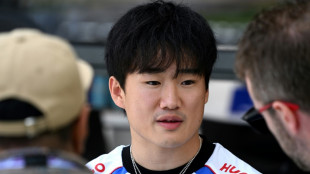
-
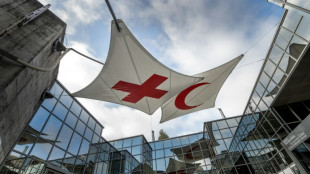 'Image whisperers' bring vision to the blind at Red Cross museum
'Image whisperers' bring vision to the blind at Red Cross museum
-
Hay shines as New Zealand make 292-8 in Pakistan ODI

-
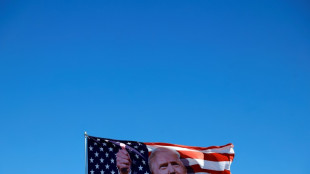 Other governments 'weaponising' Trump language to attack NGOs: rights groups
Other governments 'weaponising' Trump language to attack NGOs: rights groups
-
UK imposes online entry permit on European visitors
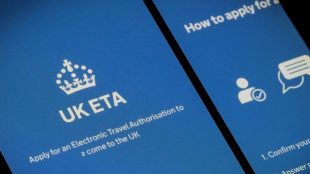
-
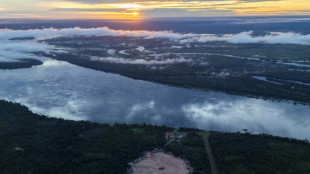 How a Brazilian chief is staving off Amazon destruction
How a Brazilian chief is staving off Amazon destruction
-
Meme politics: White House embraces aggressive alt-right online culture
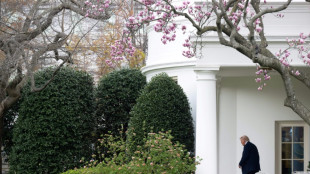
-
 China launches military drills in Taiwan Strait
China launches military drills in Taiwan Strait
-
US senator smashes record with 25-hour anti-Trump speech
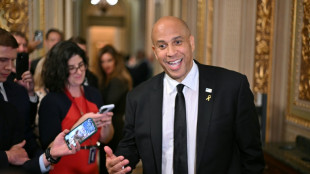
-
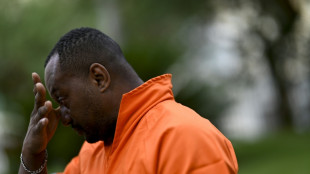 Brazil binman finds newborn baby on garbage route
Brazil binman finds newborn baby on garbage route
-
US senator smashes record with marathon anti-Trump speech
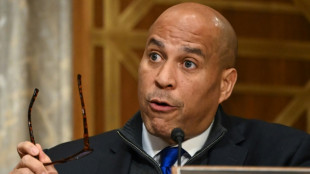
-
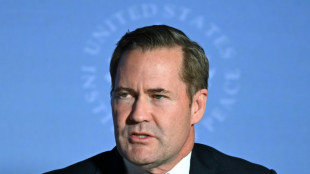 Trump advisor Waltz faces new pressure over Gmail usage
Trump advisor Waltz faces new pressure over Gmail usage
-
Niger junta frees ministers of overthrown government
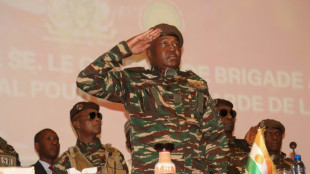
-
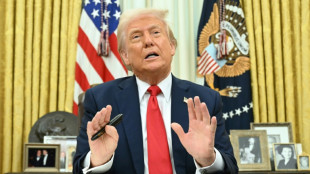 Trump set to unleash 'Liberation Day' tariffs
Trump set to unleash 'Liberation Day' tariffs
-
Boeing chief to acknowledge 'serious missteps' at US Senate hearing

-
 Real Madrid hold Real Sociedad in eight-goal thriller to reach Copa del Rey final
Real Madrid hold Real Sociedad in eight-goal thriller to reach Copa del Rey final
-
Nuno salutes 'special' Elanga after stunning strike fires Forest

-
 PSG survive scare against Dunkerque to reach French Cup final
PSG survive scare against Dunkerque to reach French Cup final
-
Sundowns edge Esperance as crowd violence mars quarter-final

-
 Nottingham Forest beat Man Utd, Saka scores on Arsenal return
Nottingham Forest beat Man Utd, Saka scores on Arsenal return
-
Elanga wonder-goal sinks Man Utd as Forest eye Champions League berth

-
 Stock markets mostly advance ahead of Trump tariffs deadline
Stock markets mostly advance ahead of Trump tariffs deadline
-
US movie theaters urge 45-day 'baseline' before films hit streaming

-
 Saka scores on return as Arsenal beat Fulham
Saka scores on return as Arsenal beat Fulham
-
Third-division Bielefeld shock holders Leverkusen in German Cup

-
 Ball-blasting 'Torpedo bats' making waves across MLB opening weekend
Ball-blasting 'Torpedo bats' making waves across MLB opening weekend
-
Newsmax shares surge more than 2,000% in days after IPO

-
 Thousands of Hungarians protest against Pride ban law
Thousands of Hungarians protest against Pride ban law
-
GM leads first quarter US auto sales as tariffs loom
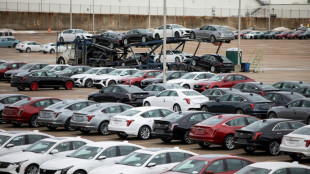
-
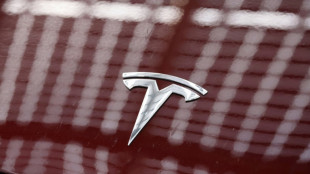 Tesla sales tumble in Europe in the first quarter
Tesla sales tumble in Europe in the first quarter
-
No 'eye for an eye' approach to US tariffs: Mexico

-
 NFL club owners back dynamic kickoffs, delay tush push vote
NFL club owners back dynamic kickoffs, delay tush push vote
-
Trump 'perfecting' new tariffs as nervous world braces
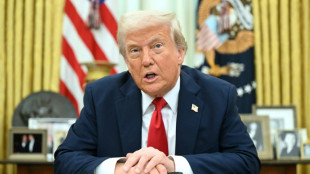
-
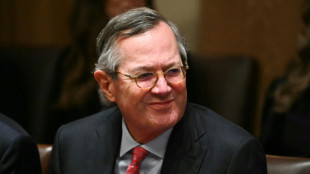 Trump nominee says to press UK on Israel arms
Trump nominee says to press UK on Israel arms
-
French court says Le Pen appeal ruling could come before presidential vote

-
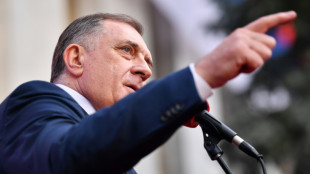 The battle to control assets behind Bosnia crisis
The battle to control assets behind Bosnia crisis
-
Prabhsimran powers Punjab to IPL win over Lucknow

-
 Mass layoffs targeting 10,000 jobs hit US health agencies
Mass layoffs targeting 10,000 jobs hit US health agencies
-
Tiger's April Foolishness: plan to play Masters just a joke
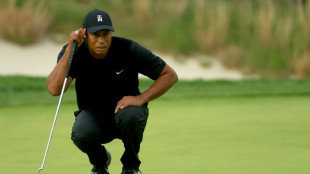
-
 Myanmar quake toll passes 2,700, nation halts to honour victims
Myanmar quake toll passes 2,700, nation halts to honour victims
-
Turkish fans, artists urge Muse to cancel Istanbul gig
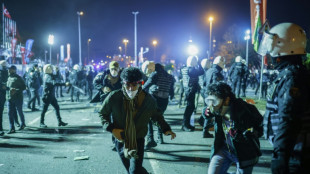
-
 US seeks death penalty for accused killer of insurance CEO
US seeks death penalty for accused killer of insurance CEO
-
UK govt moves to block sentencing guidelines for minority defendants

-
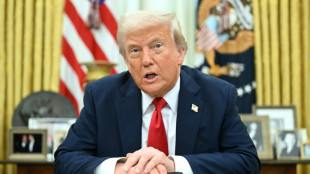 Trump puts world on edge as 'Liberation Day' tariffs loom
Trump puts world on edge as 'Liberation Day' tariffs loom
-
Swedish journalist jailed in Turkey kept 'isolated': employer
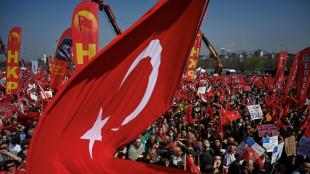

WHO members' pandemic accord talks to spill into 2025
Talks between WHO member states on a landmark global accord on handling future pandemics will roll into 2025 after countries decided Monday there were too many gaps to seal a deal this year.
The key faultline in the negotiations lies between Western nations with major pharmaceutical industry sectors, and poorer countries who do not want to be sidelined when the next pandemic strikes.
The emergence of a new strain of mpox, the deadly Marburg virus outbreak in Rwanda and the spread of H5N1 bird flu in recent months have given the talks process a timely jolt.
The negotiations, which kicked off in February 2022, are being held at the World Health Organization's headquarters in Geneva.
The WHO's 194 member states "think they still have work to do", talks co-chair Anne-Claire Amprou told a press conference.
"Today member states agreed we need to conclude the agreement as soon as possible, and continue negotiations into 2025, with the goal of concluding the agreement by the next World Health Assembly scheduled in May.
"We are moving in the right direction," she insisted.
In December 2021, fearing a repeat of the devastation wrought by Covid-19 -- which killed millions of people, crippled health systems and crashed economies -- countries decided to draft a new accord on pandemic prevention, preparedness and response.
While much of the draft text has been agreed, disputes remain over some key provisions, notably over sharing access to pathogens with pandemic potential -- and then equitably sharing the benefits derived from them, such as vaccines, tests and treatments.
Talks are also stuck on surveillance and prevention, as well as technology transfer to poorer states.
- 'Still a chasm' -
In June at the annual World Health Assembly -- the WHO's top decision-making body -- countries gave themselves until the next assembly in May 2025 to conclude and adopt the agreement -- and to get it done by the end of the year if possible.
To finish this year, countries would have had to call a special session of the assembly in December -- with Monday the last possible day to do so.
However, negotiators accepted they were still far from ready.
Countries will have a further week of talks next month and decide on December 6 whether they think an agreement can be sealed before May.
On the horizon, the return to the US presidency in January of Donald Trump -- no friend of the WHO -- also risks shaking up the process.
The two-week, 12th round of negotiations began on November 4, but little progress has been achieved so far on bridging the remaining gaps.
"In terms of the content, there's still a chasm. It's important to get the content right," Thiru Balasubramaniam, the Knowledge Ecology International NGO's Geneva representative, told AFP.
He said finding some give-and-take on ramping up surveillance for emerging pathogen threats, and equally on sharing pathogens and pandemic-fighting products, could break the logjam.
"If member states can thread the needle on those two difficult pieces of the puzzle, then the rest may follow," he said.
- 'Biggest fear' -
Talks co-chair Precious Matsoso said that all countries want to be better prepared and prevent the next disaster from happening.
"We are actually closer on some issues than we think... a clear opportunity exists for a middle ground," she said.
"Our biggest fear though is that when the next pandemic happens, it will be more severe than what we experienced with Covid-19."
K.M. Gopakumar, senior researcher with the Third World Network, said countries were discussing the conditions under which vaccines, tests and treatments would be shared for distribution among poorer countries, and what percentage of production.`
"Developed countries are saying they will give only in the case of a pandemic. But not for, say, a public health emergency of international concern, or even regular outbreak of say Ebola," he told AFP.
"As per this approach, they give only when it becomes big. That is exactly what happened with mpox. Only when there was a public health emergency was there a donation of vaccines. That is too late."
P.M.Smith--AMWN

